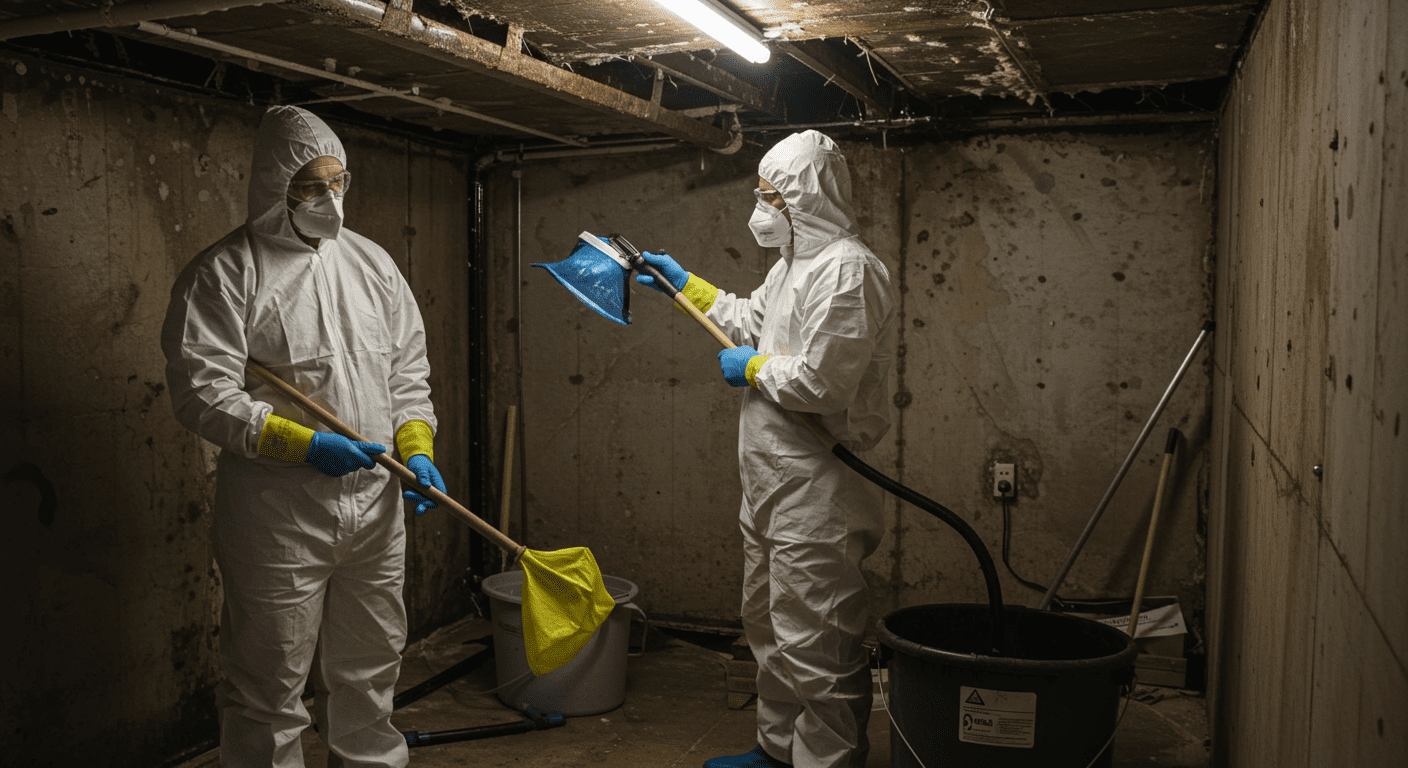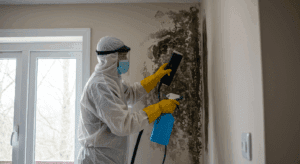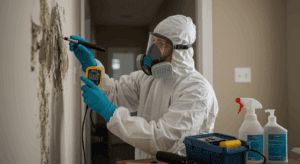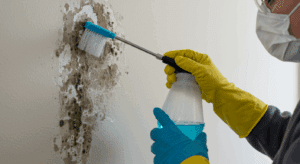Buying a house is a significant milestone, but discovering mold in your new home can turn excitement into concern. Mold is not just an aesthetic issue; it poses health risks and can lead to costly repairs if not addressed promptly. If you’ve bought a house with mold or are considering purchasing one, this guide will help you understand the implications, risks, and steps to take to protect your investment and health.
Understanding Mold in Homes
What is Mold and Why Does it Grow?
Mold is a type of fungus that thrives in damp, humid environments. It spreads through microscopic spores that can grow on various surfaces, including walls, ceilings, and floors. Mold growth is often triggered by water leaks, poor ventilation, or high humidity levels. Common areas where mold is found include basements, bathrooms, and kitchens.
Mold not only damages the structural integrity of a home but also releases allergens and irritants that can affect indoor air quality. Understanding why mold grows is the first step in addressing the problem effectively.
Common Signs of Mold Presence
Identifying mold early can save you from extensive damage and health issues. Here are some common signs to watch for:
- A musty or earthy odor in certain areas of the house.
- Visible black, green, or white spots on walls, ceilings, or floors.
- Peeling paint or wallpaper due to moisture buildup.
- Persistent allergy-like symptoms such as sneezing, coughing, or itchy eyes.
If you notice any of these signs, it’s crucial to conduct a thorough inspection to determine the extent of the mold problem.
Risks Associated with Buying a House with Mold
Health Risks Linked to Mold Exposure
Mold exposure can lead to a range of health issues, especially for individuals with allergies, asthma, or weakened immune systems. Common symptoms include respiratory problems, skin irritation, and sinus congestion. Prolonged exposure to toxic molds, such as black mold, can result in severe health complications, including neurological issues.
Protecting your family’s health should be a top priority when dealing with mold. If you suspect mold in your home, consult a professional for testing and remediation.
Potential Property Damage and Financial Implications
Mold can cause significant damage to a property’s structure, including wood rot, weakened drywall, and compromised insulation. Repairing mold damage often requires extensive work, such as replacing affected materials and addressing the source of moisture.
Additionally, mold issues can impact the resale value of your home. Buyers are often hesitant to purchase a property with a history of mold problems, making it essential to address the issue thoroughly.
When to Walk Away from a House with Mold
Key Indicators That Mold Issues are Severe
While mold can often be remediated, there are situations where the problem is too severe to justify the investment. Key indicators include:
- Mold growth in multiple areas of the house.
- Structural damage caused by prolonged exposure to moisture.
- A history of unresolved water leaks or flooding.
In such cases, the cost of remediation and repairs may outweigh the benefits of purchasing the property.
The Importance of Seller Transparency
When buying a house, sellers are legally obligated to disclose known mold issues. However, some may attempt to hide the problem to avoid deterring buyers. Always request a detailed home inspection report and ask specific questions about the property’s history of water damage and mold. Transparency from the seller can help you make an informed decision.
Steps to Take if You Decide to Proceed
Conducting a Thorough Home Inspection
Before finalizing the purchase, hire a certified mold inspector to assess the property. A professional inspection will identify the type and extent of mold, as well as the underlying causes. This information is crucial for determining the feasibility of remediation and estimating costs.
Learn more about expert mold inspection services in Winter Garden, FL.
Negotiating Mold Remediation with the Seller
If mold is discovered during the inspection, you can negotiate with the seller to address the issue before closing. Options include:
- Requesting the seller to cover the cost of remediation.
- Reducing the purchase price to account for repair expenses.
- Including a contingency clause in the contract for mold remediation.
Effective negotiation can help you mitigate financial risks and ensure the property is safe for occupancy.
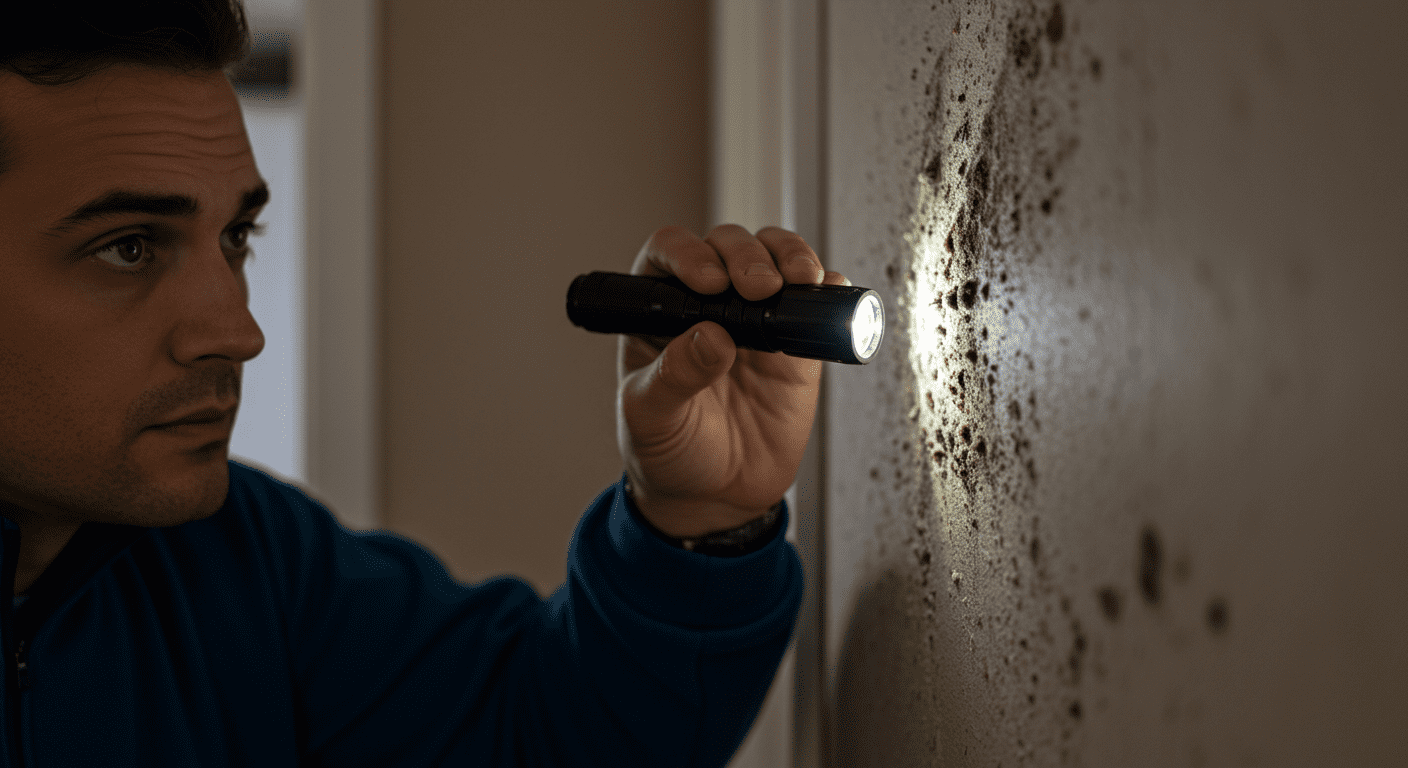
Conclusion
Buying a house with mold is a challenging situation, but it doesn’t have to be a deal-breaker. By understanding the risks, conducting thorough inspections, and negotiating effectively, you can address mold issues and protect your investment. Always prioritize health and safety when making decisions about mold remediation.
For more information on mold prevention and remediation, check out our comprehensive guide to managing fungus mold in your home.

